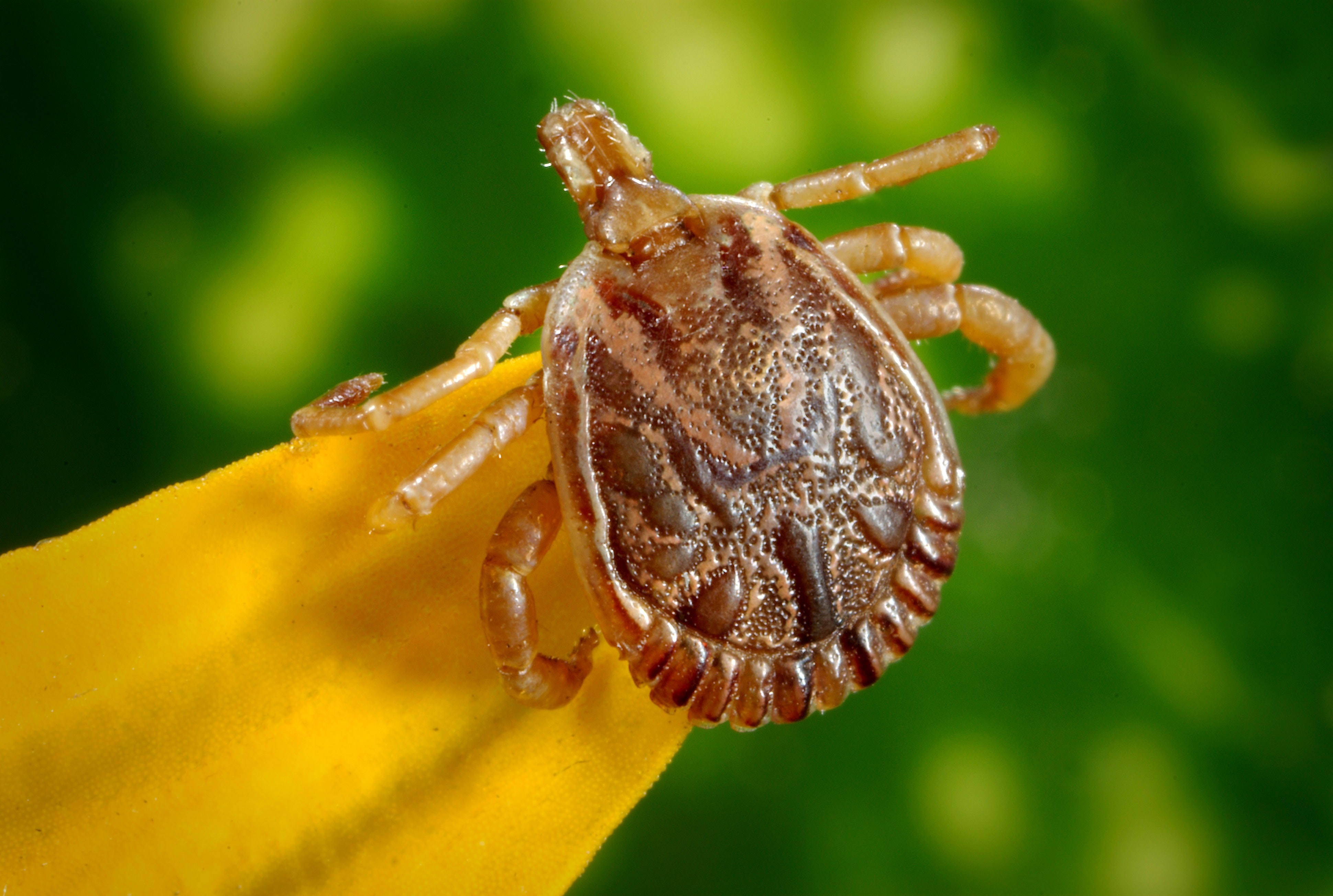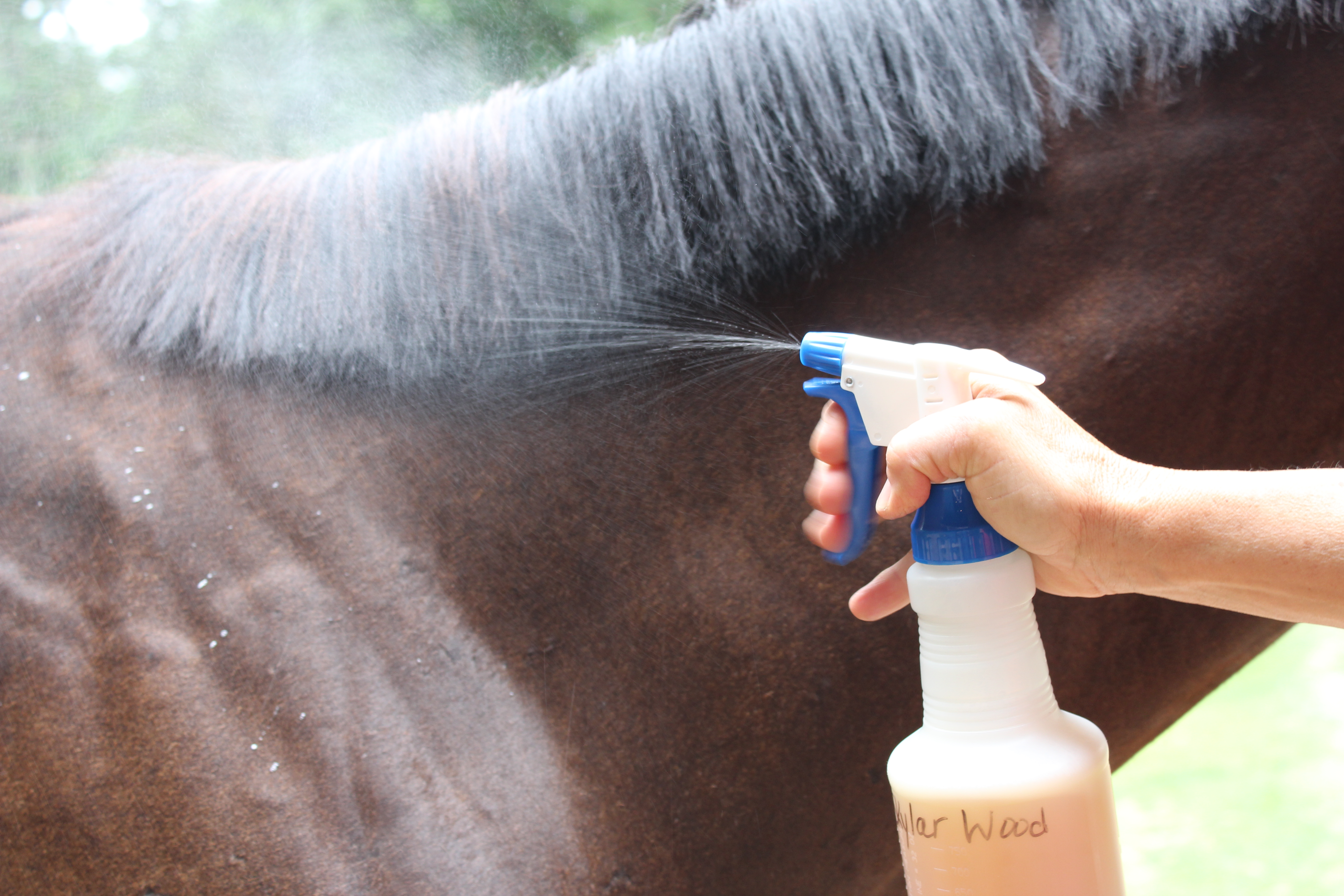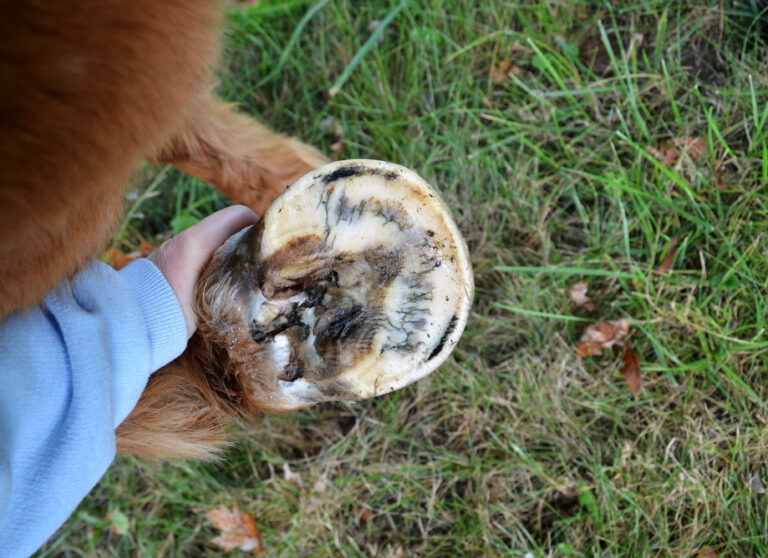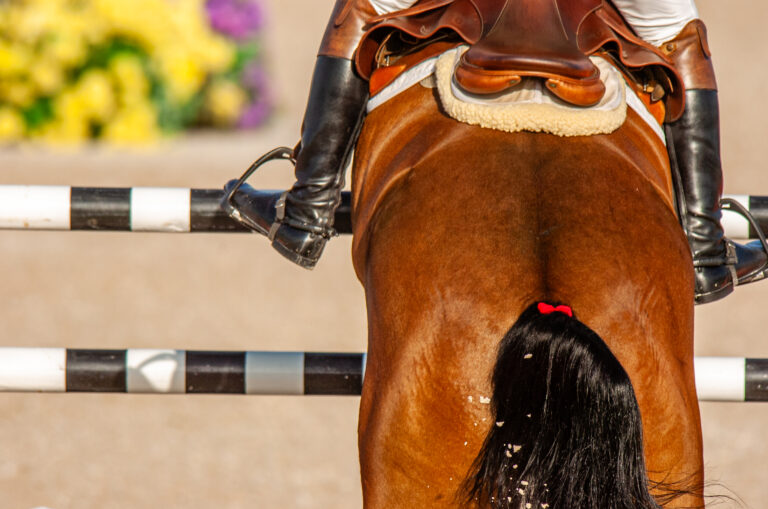Ah, summer. Hopefully for you, that means extra barn time and maybe even some shows on your radar. But with all the benefits of long summer hours comes a slew of potential health problems for your horse. Here are a few common summer equine health issues that might pop up during the next few months…. and how you can avoid them.

1. Hoof Problems
Dry, hard ground can cause of a multitude of lameness issues for horses. However, one of the most problematic concerns during the summer is the fluctuation between wet and dry conditions (of course, it’s likely during your most popular riding time… late spring, summer and early fall).
“Evening turnout–a summer strategy to avoid biting insects–puts hooves in prolonged contact with dew-soaked grass; they swell and soften with moisture, much as your fingernails soften after hours in water,” says AFA Certified Journeyman Farrier Chris Volk. “Back in a dry, hot environment during the day, the hooves dry and contract. With repetition of this cycle, horseshoe nails loosen as their holes through the hoof wall enlarge slightly. Such summer activities as work, stomping flies, or (if your horse is restless) walking the fence accelerate the loosening; pretty soon you’re asking your farrier, “Why can’t my horse keep his shoes on?”
Here are a few tips that Chris recommends to help keep your horse’s hooves in top shape this summer:
- Shorten your summer turn-out time by a few hours, to minimize your horse’s time spent stomping flies or standing in a dewy paddock. If this isn’t possible, make sure he has adequate fly protection to keep him comfortable.
- Reduce moisture absorption by applying Tuff Stuff to the lower two-thirds of his hooves before evening turnout. Skip conditioners, though, as this can actually make the hoof walls softer. Toughen his soles with a daily application of Venice turpentine. If possible, avoid unnecessary baths to decrease the time your horse’s hooves are wet–try spongeing instead.
- Shorten his summer shoeing schedule. “A lost shoe often means hoof damage,” says Chris, “which escalates the cycle of summer shoeing problems. Spacing your farrier’s regular visits a week or so closer may avoid emergency calls.”
See also: Shoe for Soundness and Performance
Another hoof problem that many horses face over the active months are sole bruises. “Galloping and jumping on hard ground can bruise the soft tissues between the sole and the bones of the foot, especially in horses with thin-walled feet,” says top performance vet Kevin Keane, DVM. “Or the horse may lose a shoe on course; unless the loss affects his way of going and causes the rider to pull up, he finishes the course without it. That can lead to extensive bruising.”
“Soak and poultice sole bruises to help draw excess fluid from the injury,” Dr. Keane advises. “Soak the foot in warm water and Epsom salts for 10 to 15 minutes once or twice a day for three or four days, and follow the soak with a poultice.” Rest the horse until the soreness is gone completely–which usually clears up in a matter of days, though a deep bruise could affect the horse for much longer. Read Dr. Keane’s article for more on this topic and other hoof issues with performance horses.
If your horse is still having trouble with his hooves, it might be worth exploring some other options, such as glue-on shoes, high-tech pads, synthetic shoes and other state-of-the-art (but widely available and surprisingly affordable) products. You could also chat with your veterinarian about your horse’s diet and see if he might benefit from a biotin hoof supplement to give him an extra boost.

2. Troublesome Ticks
Tick diseases are becoming more widespread than ever and another of the three most common summer equine health issues. Horses are susceptible to two serious tick-borne diseases that are widespread in the United States, Lyme disease and equine granulocytic anaplasmosis. Ticks also transmit many illnesses (including Lyme) to people, dogs and other animals, which makes them especially troublesome.
Since ticks have been around for millions of years, it’s highly unlikely we’ll be able to get rid of them anytime soon. The best way to protect your horse from Lyme disease, and other tick diseases, is to limit his exposure to the ticks that carry it. Here are some tips to help you minimize the risk of bites.
- Apply fly repellents that contain permethrins, which can discourage ticks from attaching to your horse. Use these products whenever ticks are active—during early spring, fall and winter warm spells—not just when flies are bothersome.
- Groom your horse daily with special attention to top tick-bite zones like the base of the mane and tail and around the ears, throatlatch and belly. If you find a tick, use tweezers to grasp it right at the skin where its mouthparts are embedded. Pull gently up to remove the tick and then kill it.
- Make ticks unwelcome in your horse’s turnout space. Get rid of their favorite hangouts by keeping the grass mowed, clearing brush and trimming low branches.
The U.S. Centers for Disease Control and Prevention has more tips and information that can help you and your horse avoid tick-borne diseases (https://www.cdc.gov/ticks/).
See also: The Lowdown on Lyme Disease in Horses

3. Equine Allergies
When your horse has allergic reaction, his immune system perceives a threat from something harmless and mounts a huge response against the “invader.” Instead of wiping out the troublesome microorganisms, the reaction can actually damage the horse’s own body tissues. Additionally, he can become hypersensitive to that specific allergen and his body can boost its defense system against it, so the next time he’s exposed to it, the reaction is likely to be quicker and stronger.
Allergic reactions can be anything from mild to life-threatening. Triggers range from airborne particles to vaccines to food and even to equine shampoos. Environmental allergies are often seasonal, depending on what insects are active and what plants are blooming.
“Allergies are not curable, but they are manageable,” says Christine Rees, DVM, a board-certified veterinary dermatologist. Learn how to recognize the signs and figure out the best course of action to prevent allergic reactions from happening.
Two of the most common types of triggers for allergies during the spring and summer months include insect bites and environmental allergens.
Swelling around an insect bite is a normal inflammatory response, but an itchy rash or a case of hives is more likely a true allergic response. The oozing rash characteristic of sweet itch, or summer eczema, is an allergic reaction to the bites of tiny Culicoides midges, which many people call no-see-ums. Proteins in the saliva of the midges trigger the reaction in the horse.
Weeds and grasses, along with insects, also cause the most trouble for horses, Dr. Rees says. Common environmental allergens include molds and dust mites as well as pollen from cocklebur, ragweed and various other plants (which are prevalent in the spring/summer months). Some horses are allergic to pollen from Bermuda grass, which is widespread in southern states and is sometimes used for pasture.
The most direct strategy is to banish the allergen from your horse’s life. If he reacts to a certain product, don’t use it. If a medication causes the reaction, work with your veterinarian to find a substitute. If biting insects are the problem, focus on fly control:
• Keep horses who are sensitive to Culicoides in during early morning and evening hours, the times when these insects are most active.
• “Fans in the stalls are useful,” Dr. Rees says, as these midges are weak fliers and can’t navigate a strong breeze.
• Use fly masks, fly sheets and fly repellents labeled for equine use when horses are turned out.
• Promptly pick up manure, old hay and other materials that can provide breeding sites for biting flies.
• Drain standing water and stock ponds and water tanks with mosquito fish or other fish that eat insect larvae.
• Experiment with other approaches, like feed-through fly control and tiny fly-predator wasps, to see if they might help.
See also: Managing Equine Allergies
Good luck with battling these troublesome issues this summer!











